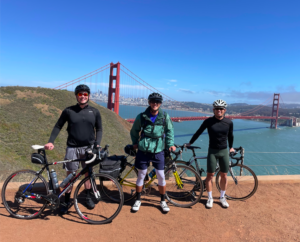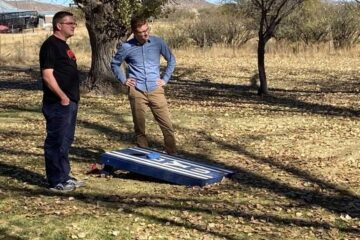In our relentless pursuit of conventional success markers—promotions, wealth, status—we often lose sight of what truly makes life fulfilling. Jeremy George’s story is a powerful reminder of how reclaiming our authentic desires can transform despair into purpose.

Photos Courtesy of Jeremy George
Jeremy’s journey began at a paradoxical moment: he had achieved everything society told him would bring happiness. Living in New York City with a beautiful apartment, a recent promotion, and more money than ever before, he should have been thriving. Instead, he found himself battling suicidal ideation, questioning if genuine fulfillment was even possible. This existential crisis persisted until three pivotal events forced him to reevaluate everything: his mother’s near-death experience after a surgery gone wrong, the global pandemic, and losing his job. These wake-up calls compelled Jeremy to confront his mortality and reconsider what truly mattered in his limited time on earth.
Rather than continuing to chase external validation, Jeremy rediscovered a bucket list he’d created years earlier as a college freshman. The list contained over 200 items, ranging from epic adventures like biking 650 miles down California’s Pacific Coast Highway to seemingly simple acts like paying for a stranger’s meal or writing a handwritten thank-you letter. Jeremy selected 52 items—one for each week of the year—and embarked on a journey that would fundamentally change his perspective on success and fulfillment.
What made this challenge truly transformative wasn’t just completing the activities themselves, but the connections formed along the way. Jeremy established one crucial rule: he would recruit at least one person to help with each bucket list item. This principle led to rebuilding relationships with old friends, forming new connections, and experiencing the power of community. When Jeremy wanted to learn guitar, a high school friend offered free lessons; when he was curious about blindfolded travel selection, friends joined him for an impromptu Costa Rica adventure; when biking down the California coast, various friends joined for different segments, offering meals, lodging, and companionship.
Perhaps most significantly, Jeremy learned to celebrate failure as much as success. Out of his 52 goals, he completed only 32—what he jokingly calls a “D-minus” if graded academically. Yet this “failure” became one of the project’s most valuable lessons. He applied to multiple reality TV shows and was rejected by all. He attempted to turn $1,000 into $10,000 in Las Vegas and lost miserably. He reached out to actor Joseph Gordon-Levitt for a selfie and received a polite decline. Through these rejections, Jeremy discovered that the attempt itself—the willingness to try—was more meaningful than the outcome. 
This perspective shift led Jeremy to create Bucket Match, a platform connecting people based on shared bucket list goals. The premise is simple but powerful: achieving our dreams becomes significantly more likely when we have support, whether that means joining forces with someone sharing the same goal or learning from someone who has already achieved it. Statistics back this up—sharing goals with trusted friends makes us 77.6% more likely to achieve them than keeping them to ourselves.
For those inspired by Jeremy’s story, the message isn’t necessarily to quit your job and attempt 52 bucket list items. Rather, it’s about reconnecting with your authentic desires, embracing vulnerability through shared experiences, and recognizing that true fulfillment often comes from stretching beyond your comfort zone with others by your side. As Jeremy discovered, sometimes the richest moments come not from success itself, but from the community formed while reaching for our dreams.


